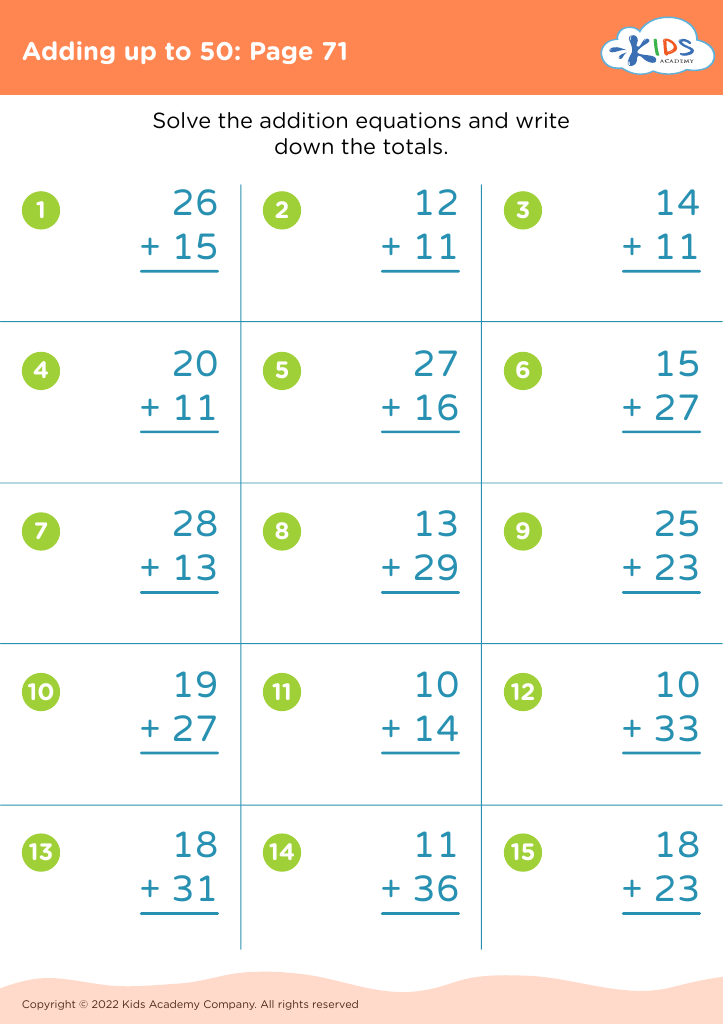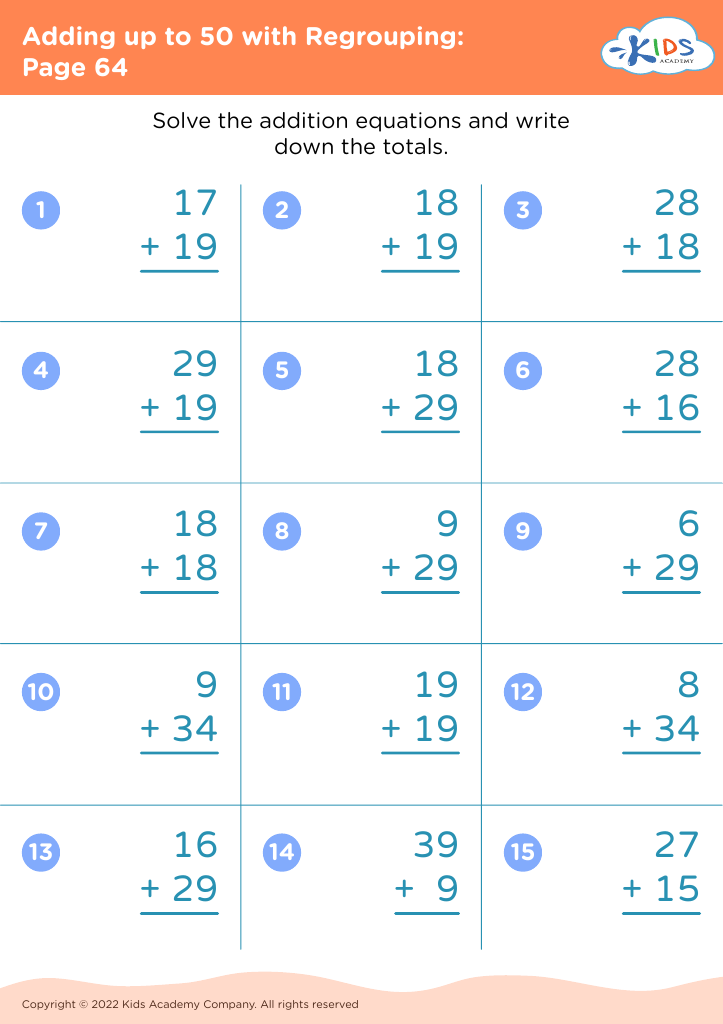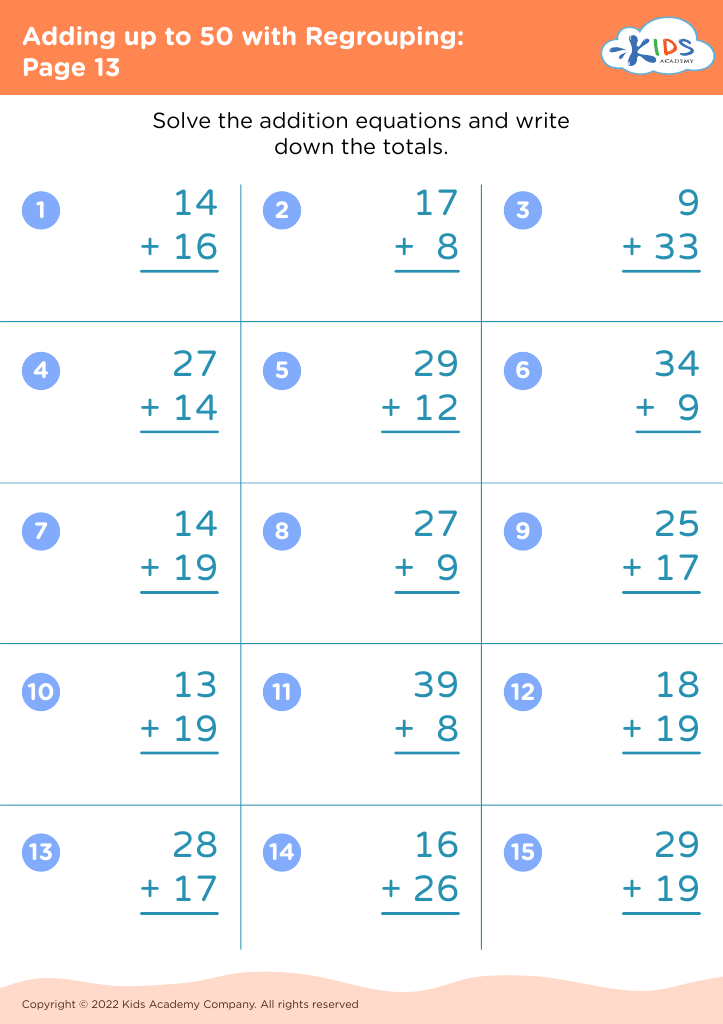Cognitive Development Adding up to 50 Worksheets for 7-Year-Olds
4 filtered results
-
From - To
Enhance your 7-year-old's cognitive development with our engaging "Adding up to 50 Worksheets." Designed to make learning fun, these interactive worksheets help children master addition skills within 50 while fostering critical thinking and problem-solving abilities. Each worksheet is carefully crafted to challenge young minds, boost their confidence, and ensure they grasp essential math concepts. Whether at home or in the classroom, these resources are perfect for reinforcing learning through hands-on practice. Unlock your child's potential in math with our thoughtfully designed worksheets, encouraging a solid foundation in cognitive skills that will support their academic journey. Explore our collection today!
Cognitive development is crucial for 7-year-olds, influencing their ability to learn and navigate the world. At this age, children are forming foundational skills in critical thinking, problem-solving, and memory. Understanding how cognitive development affects learning helps parents and teachers better support children’s intellectual growth.
One key aspect is the improvement of logical reasoning. By fostering discussions around numbers, shapes, and relationships, adults can encourage a child’s ability to process and analyze information, which is vital in subjects like math and science. Engaging in activities that involve counting, sorting, and basic operations lays a groundwork for future mathematical understanding.
Additionally, cognitive development influences communication skills. As children express their ideas and ask questions, their vocabulary expands and they learn to articulate thoughts clearly. Teachers and parents who create an interactive learning environment stimulate curiosity, enhancing the child’s eagerness to explore and engage with new concepts.
At this age, children begin to develop a deeper understanding of cause and effect. This knowledge can help them make connections between actions and consequences, promoting responsible decision-making. By prioritizing cognitive development, adults can empower children to become confident, curious learners who can thrive academically and socially.






















